Chinese Cinnamon
How to submit an article:
- Registered users can submit any published journal article that has a unique DOI (Digital Object Identifier) name or link to Research Hub.
- For example, you can paste the full DOI link:
https://doi.org/10.1109/5.771073or just the DOI name:10.1109/5.771073into the field above and click submit. - The person who is first to submit a valid article to Research Hub will forever be credited for it, and every article submission earns you +6 Research Points.
Also known as: Cassia Cinnamon, Cinnamomum Cassia, Rou Gui
Published research studies are articles that present the findings of original research that has undergone a peer-review process and has been made publicly available in scholarly journals, books or other media.
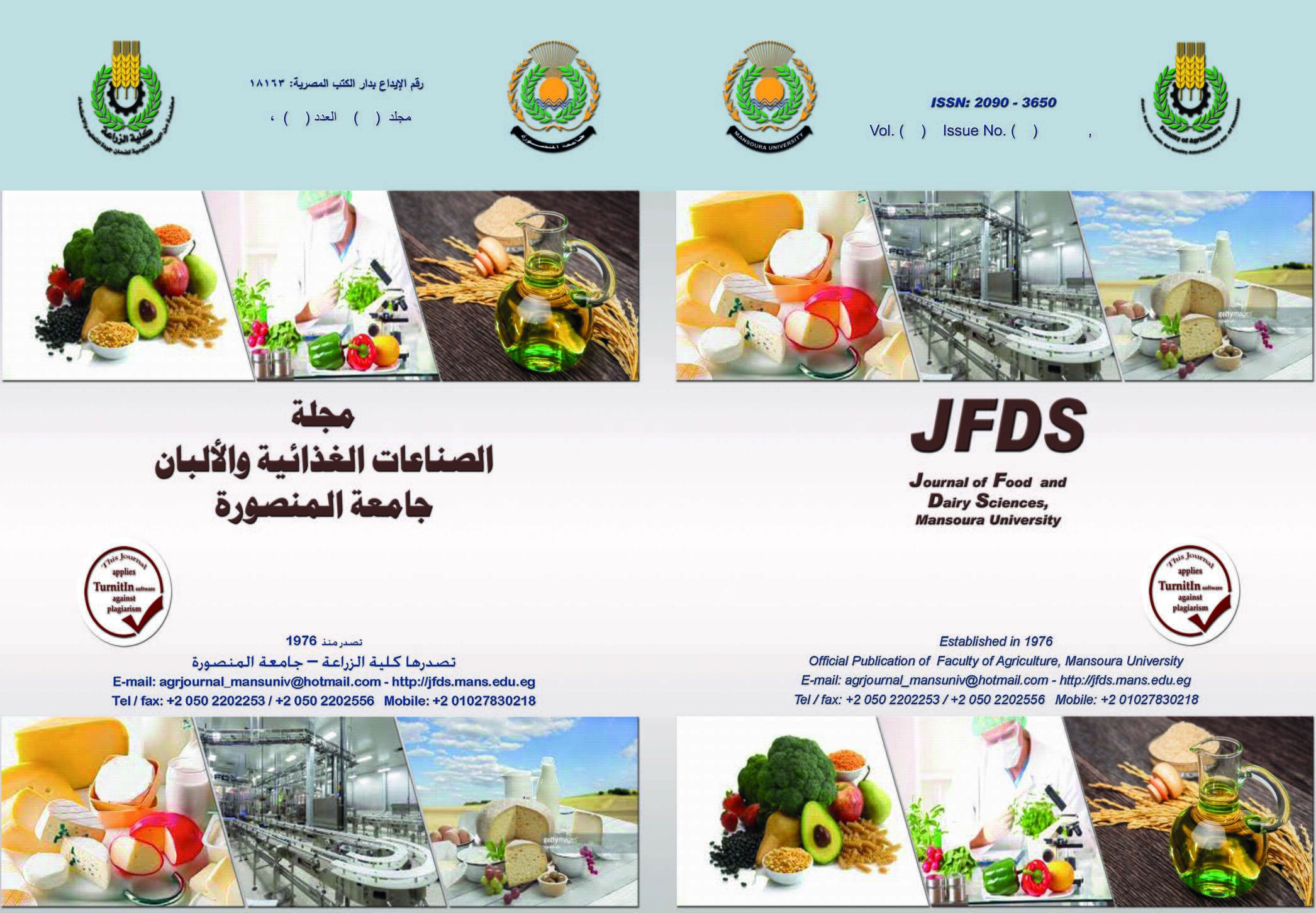
Manufacture and Evaluation of Novel Chocolate for Girls' Dysmenorrhea
2023 Mar 01 Journal of Food and Dairy Sciences Shalaby, A, Moawad O, Mostafa M
Randomised Controlled Trial Ginger Chinese Cinnamon Dark Chocolate Iron Field Mint CinnamonCinnamon, ginger, and mint enhanced chocolates effectively reduce menstrual pain and improve blood iron levels without increasing body weight or negatively affecting cholesterol.

Safety of Cinnamon: An Umbrella Review of Meta-Analyses and Systematic Reviews of Randomized Clinical Trials
2022 Jan 18 Frontiers in Pharmacology Gu DT, Tung TH, Jiesisibieke ZL, Chien CW, Liu WY
Meta-Analysis Systematic Review Chinese CinnamonCinnamon is a safe therapeutic agent without significant adverse effects based on systematic reviews and meta-analyses.
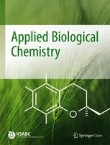
Potential and beneficial effects of Cinnamomum cassia on gastritis and safety: Literature review and analysis of standard extract
2021 Dec Applied Biological Chemistry Lee JH, Park DH, Lee S, Seo HJ, Park SJ, Jung K, et al.
Review Article Systematic Review Gastritis Chinese CinnamonCinnamomum cassia, or cinnamon, exhibits promising therapeutic benefits in combating gastritis by targeting inflammation pathways, according to preclinical studies.

A 12-Week, Multicenter, Randomized, Double-Blind, Placebo-Controlled Clinical Trial for Evaluation of the Efficacy and Safety of DKB114 on Reduction of Uric Acid in Serum
2020 Dec 10 Nutrients Park YH, Kim DH, Lee JS, Jeong HI, Lee KW, Kang TH
Randomised Controlled Trial Chinese Cinnamon Gout Uric Acid HyperuricemiaDKB114, a mixture of Linn flower extract, effectively reduces serum uric acid level, suggesting its potential as a dietary supplement for hyperuricemia treatment.

Impact of Cinnamon Supplementation on cardiometabolic Biomarkers of Inflammation and Oxidative Stress: A Systematic Review and Meta-Analysis of Randomized Controlled Trials
2020 Sep Complementary Therapies in Medicine Zhu, Changyou; Yan, Hongmei; Yin, Zheng; Santos, Heitor O; Melahat Sedanur Macit; et al
Systematic Review Meta-Analysis Chinese Cinnamon Anti-Inflammatory AntioxidantCinnamon supplementation significantly decreases inflammation and oxidative stress levels, serving as a potential additive for cardiometabolic health improvement.
Research insights are moderated by the Research Hub team and offer an at-a-glance overview of interesting research findings.

2023 Journal of Food and Dairy Sciences
Cinnamon, ginger, and mint enhanced chocolates effectively reduce menstrual pain and improve blood iron levels without increasing body weight or negatively affecting cholesterol.
Randomised Controlled Trial Cinnamon Dark Chocolate Field Mint Ginger Iron
Manufacture and Evaluation of Novel Chocolate for Girls' Dysmenorrhea
Shalaby, A, Moawad O, Mostafa M

2022 Frontiers in Pharmacology
Cinnamon is a safe therapeutic agent without significant adverse effects based on systematic reviews and meta-analyses.
Meta-Analysis
Safety of Cinnamon: An Umbrella Review of Meta-Analyses and Systematic Reviews of Randomized Clinical Trials
Gu DT, Tung TH, Jiesisibieke ZL, Chien CW, Liu WY

2021 Applied Biological Chemistry
Cinnamomum cassia, or cinnamon, exhibits promising therapeutic benefits in combating gastritis by targeting inflammation pathways, according to preclinical studies.
Review Article Gastritis
Potential and beneficial effects of Cinnamomum cassia on gastritis and safety: Literature review and analysis of standard extract
Lee JH, Park DH, Lee S, Seo HJ, Park SJ, Jung K, et al.

2020 Nutrients
DKB114, a mixture of Linn flower extract, effectively reduces serum uric acid level, suggesting its potential as a dietary supplement for hyperuricemia treatment.
Randomised Controlled Trial Gout Hyperuricemia Uric Acid
A 12-Week, Multicenter, Randomized, Double-Blind, Placebo-Controlled Clinical Trial for Evaluation of the Efficacy and Safety of DKB114 on Reduction of Uric Acid in Serum
Park YH, Kim DH, Lee JS, Jeong HI, Lee KW, Kang TH

2020 Complementary Therapies in Medicine
Cinnamon supplementation significantly decreases inflammation and oxidative stress levels, serving as a potential additive for cardiometabolic health improvement.
Systematic Review Anti-Inflammatory Antioxidant
Impact of Cinnamon Supplementation on cardiometabolic Biomarkers of Inflammation and Oxidative Stress: A Systematic Review and Meta-Analysis of Randomized Controlled Trials
Zhu, Changyou; Yan, Hongmei; Yin, Zheng; Santos, Heitor O; Melahat Sedanur Macit; et al
Review Articles
Review articles summarise and critically evaluate the current state of research on a specific topic or field by synthesising multiple primary research studies.

Safety of Cinnamon: An Umbrella Review of Meta-Analyses and Systematic Reviews of Randomized Clinical Trials
2022 Jan 18 Frontiers in Pharmacology Gu DT, Tung TH, Jiesisibieke ZL, Chien CW, Liu WY
Meta-Analysis Systematic Review Chinese CinnamonCinnamon is a safe therapeutic agent without significant adverse effects based on systematic reviews and meta-analyses.

Potential and beneficial effects of Cinnamomum cassia on gastritis and safety: Literature review and analysis of standard extract
2021 Dec Applied Biological Chemistry Lee JH, Park DH, Lee S, Seo HJ, Park SJ, Jung K, et al.
Review Article Systematic Review Gastritis Chinese CinnamonCinnamomum cassia, or cinnamon, exhibits promising therapeutic benefits in combating gastritis by targeting inflammation pathways, according to preclinical studies.

Impact of Cinnamon Supplementation on cardiometabolic Biomarkers of Inflammation and Oxidative Stress: A Systematic Review and Meta-Analysis of Randomized Controlled Trials
2020 Sep Complementary Therapies in Medicine Zhu, Changyou; Yan, Hongmei; Yin, Zheng; Santos, Heitor O; Melahat Sedanur Macit; et al
Systematic Review Meta-Analysis Chinese Cinnamon Anti-Inflammatory AntioxidantCinnamon supplementation significantly decreases inflammation and oxidative stress levels, serving as a potential additive for cardiometabolic health improvement.

Effects of cinnamon on controlling metabolic parameters of polycystic ovary syndrome: A systematic review and meta-analysis
2020 May Journal of Ethnopharmacology Heydarpour F, Hemati N, Hadi A, Moradi S, Mohammadi E, Farzaei MH
Systematic Review Meta-Analysis Chinese Cinnamon PCOSCinnamon supplementation may help manage metabolic parameters in polycystic ovary syndrome patients by reducing fasting blood sugar, insulin, LDL-C, total cholesterol, and triacylglycerol levels.
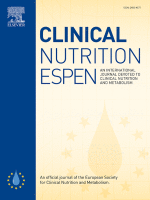
The effect of cinnamon supplementation on blood pressure in adults: A systematic review and meta-analysis of randomized controlled trials
2020 Apr Clinical Nutrition ESPEN Hadi A, Campbell MS, Hassani B, Pourmasoumi M, Salehi-sahlabadi A, Hosseini SA
Systematic Review Meta-Analysis Chinese Cinnamon High Blood PressureCinnamon supplementation can improve blood pressure by a modest degree.
Clinical Trials
Clinical trials are research studies that involve people and are conducted to evaluate the safety and efficacy of new treatments or interventions, such as drugs, medical devices, or behavioural therapies.

Manufacture and Evaluation of Novel Chocolate for Girls' Dysmenorrhea
2023 Mar 01 Journal of Food and Dairy Sciences Shalaby, A, Moawad O, Mostafa M
Randomised Controlled Trial Ginger Chinese Cinnamon Dark Chocolate Iron Field Mint CinnamonCinnamon, ginger, and mint enhanced chocolates effectively reduce menstrual pain and improve blood iron levels without increasing body weight or negatively affecting cholesterol.

A 12-Week, Multicenter, Randomized, Double-Blind, Placebo-Controlled Clinical Trial for Evaluation of the Efficacy and Safety of DKB114 on Reduction of Uric Acid in Serum
2020 Dec 10 Nutrients Park YH, Kim DH, Lee JS, Jeong HI, Lee KW, Kang TH
Randomised Controlled Trial Chinese Cinnamon Gout Uric Acid HyperuricemiaDKB114, a mixture of Linn flower extract, effectively reduces serum uric acid level, suggesting its potential as a dietary supplement for hyperuricemia treatment.

The effect of Cinnamon on primary dysmenorrhea: A randomized, double-blind clinical trial
2018 Nov Complementary Therapies in Medicine Jahangirifar M, Taebi M, Dolatian M
Cinnamon can reduce the intensity of primary dysmenorrhea. This aromatic spice for relive of primary dysmenorrhea is recommended.
Randomised Controlled Trial Period Pain Chinese CinnamonStudy Protocols
Published study protocols are detailed plans that outline the objectives, methodology, statistical analyses, and organisation of a research study that have been made publicly available for others to review and use as a reference.
Presentation Slides

Randomised Controlled Trial
Cinnamon, ginger, and mint enhanced chocolates effectively reduce menstrual pain and improve blood iron levels without increasing body weight or negatively affecting cholesterol.
Shalaby, A, Moawad O, Mostafa M

Meta-Analysis
Cinnamon is a safe therapeutic agent without significant adverse effects based on systematic reviews and meta-analyses.
Gu DT, Tung TH, Jiesisibieke ZL, Chien CW, Liu WY

Review Article
Cinnamomum cassia, or cinnamon, exhibits promising therapeutic benefits in combating gastritis by targeting inflammation pathways, according to preclinical studies.
Lee JH, Park DH, Lee S, Seo HJ, Park SJ, Jung K, Kim SY, Kang KS

Randomised Controlled Trial
DKB114, a mixture of Linn flower extract, effectively reduces serum uric acid level, suggesting its potential as a dietary supplement for hyperuricemia treatment.
Park YH, Kim DH, Lee JS, Jeong HI, Lee KW, Kang TH

Systematic Review
Cinnamon supplementation significantly decreases inflammation and oxidative stress levels, serving as a potential additive for cardiometabolic health improvement.
Zhu, Changyou; Yan, Hongmei; Yin, Zheng; Santos, Heitor O; Melahat Sedanur Macit; et al

Systematic Review
Cinnamon supplementation may help manage metabolic parameters in polycystic ovary syndrome patients by reducing fasting blood sugar, insulin, LDL-C, total cholesterol, and triacylglycerol levels.
Heydarpour F, Hemati N, Hadi A, Moradi S, Mohammadi E, Farzaei MH

Systematic Review
Cinnamon supplementation can improve blood pressure by a modest degree.
Hadi A, Campbell MS, Hassani B, Pourmasoumi M, Salehi-sahlabadi A, Hosseini SA
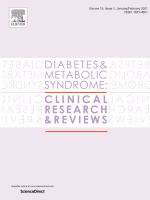
Systematic Review
Cinnamon supplementation in type 2 diabetes patients significantly reduces systolic and diastolic blood pressure, but doesn't significantly affect body weight and waist circumference.
Jamali N, Jalali M, Saffari-Chaleshtori J, Samare-Najaf M, Samareh A
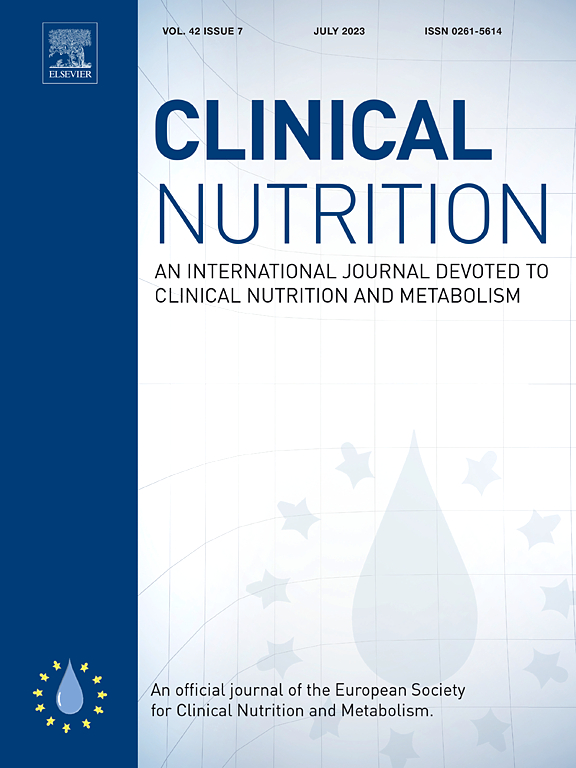
Systematic Review
Cinnamon intake significantly reduces body weight, body mass index, waist circumference, and fat mass in adults, and can be recommended as a supplement for obesity management.
Mousavi SM, Rahmani J, Kord-Varkaneh H, Sheikhi A, Larijani B, Esmaillzadeh A

Systematic Review
Cinnamon supplementation can significantly reduce body weight, body mass index, and waist-hip ratio.
Zeinab Yazdanpanah,Maryam Azadi-Yazdi,Hadis Hooshmandi,Nahid Ramezani-Jolfaie,Amin Salehi-Abargouei,

Systematic Review
Cinnamon supplementation leads to a significant reduction in both systolic and diastolic blood pressure in adults.
Seyed Mohammad Mousavi, Ahmad Jayedi, Yahya Jalilpiran, Maryam Hajishafiee, Azadeh Aminianfar, Ahmad Esmaillzadeh.
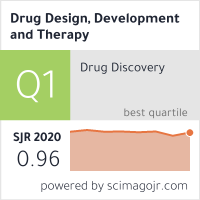
Animal Study
The herbal formula B210 can alleviate snoring in aged rats by modifying the activities and breathing time of relevant nerves.
Chung KT, Hsu CH, Lin CL, Wang SE, Wu CH
Executive Summary
Write an executive summary in the form of a blog article on the topic of "Research into Chinese medicine treatment for Chinese Cinnamon" summarising the research below and using language that can be easily understood by patients and avoiding medical jargon using a professional and caring tone of voice.
Write an executive summary in the form of a blog article on the topic of "Researched Chinese medicine treatments for Chinese Cinnamon" summarising the research below in an objective and easy to understand way, and using language that can be easily understood by patients. Group the article into Chinese medicine treatments first, followed by nutrition and other treatments. Avoid using medical jargon and use a professional and caring tone of voice.
Write me a concise but easy to understand executive summary on the topic of "Chinese medicine treatments for Chinese Cinnamon" based on the following research that I will give you. Your summary should be 2 paragraphs long in Australian English spelling and include references to the studies.
A Randomised Controlled Trial published in 2023 in the journal Journal of Food and Dairy Sciences found that Cinnamon, ginger, and mint enhanced chocolates effectively reduce menstrual pain and improve blood iron levels without increasing body weight or negatively affecting cholesterol. The methodology of the study involved a sample of 48 female student volunteers, aged 18-25, from Mansoura University who were experiencing dysmenorrhea. These volunteers were divided into eight groups of six and each group was given a different type of chocolate: regular chocolate, chocolate without herbal powder, chocolate with cinnamon powder, chocolate with cinnamon oil, chocolate with ginger powder, chocolate with ginger oil, chocolate with mint powder, and chocolate with mint oil. Discussion of the results demonstrated that the consumption of chocolates supplemented with cinnamon, ginger, and mint powders and their respective essential oils led to a significant improvement in participants' hemoglobin scores compared to a control group which consumed normal chocolate. Furthermore, it was found that these chocolates had a positive influence on serum total cholesterol, triglycerides, high-density lipoprotein, and low-density lipoprotein scores. Importantly, chocolate consumption did not lead to an increase in the participants' body mass index, proving that these chocolate variants could reduce menstrual pain and lift blood iron levels without instigating weight gain or having adverse effects on cholesterol levels.
A Meta-Analysis published in 2022 in the journal Frontiers in Pharmacology found that Cinnamon is a safe therapeutic agent without significant adverse effects based on systematic reviews and meta-analyses. The researchers conducted a thorough search of PubMed, EMBASE, and the Cochrane Library, identifying relevant systematic reviews and meta-analyses on human subjects' cinnamon safety. The search consisted of articles up to September 2021, with the PRISMA 2020 guidelines followed for comprehensive reporting and transparency. The reliability of these studies' methodology was determined using methodological quality standards. The review included three meta-analyses and one systematic review, with two of the four classified as moderate quality, and the others as low quality. Generally, the academic studies found no significant harmful effects compared to a placebo, regardless of the dose or length of therapy. The findings suggest that humans well tolerate cinnamon, as no adverse reactions were observed in the study subjects. This evidence confirms the safety of cinnamon consumption, potentially providing health benefits as auxiliary treatment without significant risk of harm.
A Review Article published in 2021 in the journal Applied Biological Chemistry found that Cinnamomum cassia, or cinnamon, exhibits promising therapeutic benefits in combating gastritis by targeting inflammation pathways, according to preclinical studies. This study is a systematic review of 20 studies evaluating the pharmacological effects and mechanisms of C. cassia in treating gastritis. Focusing on the main active compound of C. cassia, cinnamaldehyde, the research was centered around its influence on inflammation pathways. Furthermore, different methodologies were used to induce gastric ulcers, including stress, alcohol, excessive acidity, and the prolonged usage of non-steroidal anti-inflammatory drugs (NSAIDs). The result discussion highlights the success C. cassia extract demonstrated in protecting against gastritis. Key findings stemmed from preclinical tests, with predominantly animal models, including Beagle dogs and rats. The ingestion of standardized C. cassia extracts showed positive effects with no toxicity, asserting the effectiveness and safety of this natural remedy in managing gastritis.
A Randomised Controlled Trial published in 2020 in the journal Nutrients found that DKB114, a mixture of Linn flower extract, effectively reduces serum uric acid level, suggesting its potential as a dietary supplement for hyperuricemia treatment. The research employed a randomized, double-blind, placebo-controlled clinical trial conducted across a span of 12 weeks. A total of 80 asymptomatic hyperuricemic subjects (serum uric acid level between 7.0-9.0 mg/dL) were selected and equally split into two groups. One group was administered DKB114, the investigational mixture of extracts, while the other group received a placebo. After six weeks of administration, the levels of serum uric acid were evaluated, revealing no significant difference between the two groups. By the end of the 12th week, however, subjects in the DKB114 group exhibited a noticeably larger decrease in their serum uric acid levels when compared to the placebo group. Additionally, various other health indicators including C-reactive protein and apoprotein B levels showed significant trends favoring DKB114. Further evaluations during the trial included clinical pathological tests, weight measurements and vital signs, and electrocardiogram tests which confirmed the safety of DKB114. No significant harmful effects or differences were detected in comparison to the placebo group. This concludes the positive impact and safe use of DKB114 for patients with elevated serum uric acid levels.
A Systematic Review published in 2020 in the journal Complementary Therapies in Medicine found that Cinnamon supplementation significantly decreases inflammation and oxidative stress levels, serving as a potential additive for cardiometabolic health improvement. The systematic review and meta-analysis followed the Preferred Reporting Items of Systematic Reviews and Meta-Analysis guidelines. A comprehensive search for appropriate clinical trials was performed across multiple databases including PubMed/MEDLINE, Scopus, Cochrane Library, Web of Science, Embase, and Google Scholar until January 2020. After duplicates were removed, 1145 studies were found eligible and 12 studies were finally included in the meta-analysis, investigating the impact of cinnamon supplementation dosages ranging between 1.5 to 4 grams per day. The results of the meta-analysis revealed that cinnamon supplementation led to a significant reduction in inflammation markers, C-reactive protein and interleukin-6, alongside a decrease in malondialdehyde, an oxidative stress marker. Concurrently, an increase was observed in the total antioxidant capacity following the supplementation, implying an enhancement in the body's defensive ability against oxidative damage. Nevertheless, no significant change was identified in the levels of intercellular adhesion molecule-1 after the cinnamon supplementation.
A Systematic Review published in 2020 in the journal Journal of Ethnopharmacology found that Cinnamon supplementation may help manage metabolic parameters in polycystic ovary syndrome patients by reducing fasting blood sugar, insulin, LDL-C, total cholesterol, and triacylglycerol levels. In order to evaluate the effect of cinnamon supplementation on metabolic parameters of PCOS patients, relevant clinical trials were systematically reviewed and analysed. Data was collated from multiple credible databases including PubMed, Embase, the Cochrane library, Scopus and Web of Science, up until August 2019. Studies were selected that provided information specifically about the impact of cinnamon supplementation on metabolic parameters amongst PCOS patients. Standard methods were used to assess heterogeneity, publication bias and sensitivity analysis with five clinical trials pooled together using a weighted mean-difference calculation. The findings of the meta-analysis showed that cinnamon supplementation does not significantly affect body weight and body mass index in PCOS patients. However, it was found that cinnamon supplementation led to a significant decrease in fasting blood sugar, fasting insulin, and HOMA-IR, along with reducing the serum levels of LDL-C, total cholesterol, and triacylglycerol. Additionally, there was an observed improvement in serum concentration of HDL-C with cinnamon supplementation. Ultimately illustrating that cinnamon supplementation may play a significant role in managing metabolic parameters in polycystic ovary syndrome patients.
A Systematic Review published in 2020 in the journal Clinical Nutrition ESPEN found that Cinnamon supplementation can improve blood pressure by a modest degree. Meta-analysis of 9 RCTs with 641 participants showed significant reductions in both systolic (WMD: −5.17 mmHg, 95% CI: −9.35 to −0.99, P = 0.01) and diastolic blood pressure (WMD: −3.36 mmHg, 95% CI: −5.67 to −1.04, P ≤ 0.001) after cinnamon supplementation. Subgroup analyses indicated that these results were significant only when cinnamon was administered at the dosages of ≤2 g/day, for a period longer than 8 weeks, and in participants with a baseline BMI of ≥30 kg/m2.
A Systematic Review published in 2020 in the journal Diabetes & Metabolic Syndrome: Clinical Research & Reviews found that Cinnamon supplementation in type 2 diabetes patients significantly reduces systolic and diastolic blood pressure, but doesn't significantly affect body weight and waist circumference. This systematic review and meta-analysis diligently looked for related studies in databases like PubMed, Embase, Scopus, Web of Science and Cochrane Library. The search was conducted up to August 22, 2019, and aimed at finding the impact of cinnamon supplementation on blood pressure and certain anthropometric parameters among patients with type 2 diabetes. To gauge the effectivity, they used standard mean difference and confidence intervals. In cases of heterogeneity, fixed and random effect models were utilized. The collated data was analyzed using Stata 13. After refining the records, nine suitable articles were chosen for review. The meta-analysis results indicated a significant decrease in systolic and diastolic blood pressure in type 2 diabetic patients following the incorporation of cinnamon in their diet. However, the supplement did not result in a significant change in their body weight, body mass index, and waist circumference. These fluctuations in anthropometric factors were noted, but they did not reach a level of statistical significance.
A Systematic Review published in 2020 in the journal Clinical Nutrition found that Cinnamon intake significantly reduces body weight, body mass index, waist circumference, and fat mass in adults, and can be recommended as a supplement for obesity management. Various online search engines such as PubMed, SCOPUS, Google Scholar, and Cochrane Library were trawled to find relevant articles on the impact of cinnamon consumption on obesity measures. The data from these articles was then combined and expressed as weighted mean difference and 95% confidence intervals utilizing the random-effects method. The potential non-linear association was appraised via fractional polynomial modeling. The study incorporated 12 trials from an initial pool of 679 records, bringing together a total of 786 participants. The aggregated outcome demonstrates that cinnamon intake can significantly decrease body weight, body mass index, waist circumference, and fat mass in adults. The impact on body weight was particularly pronounced in subjects under 50 years old and those with a higher baseline body mass index (≥30 kg/m). Daily dosages of cinnamon at or above 2 grams, and administered for 12 weeks or more resulted in significant reductions in fat mass. There was a non-linear reduction in body weight and waist circumference with the administration of cinnamon over the study period.
A Systematic Review published in 2019 in the journal Phytotherapy Research found that Cinnamon supplementation can significantly reduce body weight, body mass index, and waist-hip ratio. In the meta-analysis, various databases (including Medline, ISI Web of Science, Scopus, Google Scholar, and Cochrane Library) were searched without limitations until August 2019 for relevant randomized controlled clinical trials. The risk of bias of the randomized controlled clinical trials was appraised with the Cochrane collaboration's tool. The random-effects model was employed for the meta-analysis. The conclusive results indicate that cinnamon supplementation has a notable effect in reducing body mass index, body weight, and waist-hip ratio. Meanwhile, cinnamon supplementation didn't yield significant effects on waist circumference and body fat mass. These results were deduced from twenty-one randomized controlled trials involving a total of 1,480 participants.
A Systematic Review published in 2019 in the journal Critical Reviews in Food Science and Nutrition found that Cinnamon supplementation leads to a significant reduction in both systolic and diastolic blood pressure in adults. This systematic review and meta-analysis included studies up to July 2019, sourced from databases like PubMed/Medline, Scopus, ISI Web of Science, Embase, and Google Scholar. The research focused on randomized clinical trials that primarily explored the effect of oral cinnamon supplementation on blood pressure parameters, including systolic or diastolic blood pressure. From the 469 citations, nine trials involving 641 subjects were included. The results inferred that cinnamon supplementation leads to a noticeable decrease in both systolic and diastolic blood pressure. A more remarkable effect on systolic blood pressure was observed in trials using less or equal to 2g cinnamon, lasting for 12 weeks or more, and included participants under the age of 50. Diastolic blood pressure was also reduced using lower doses of cinnamon. No significant non-linear associations were detected between cinnamon supplementation dosage, study duration, and both systolic and diastolic blood pressure.
A Animal Study published in 2018 in the journal Drug Design, Development and Therapy found that The herbal formula B210 can alleviate snoring in aged rats by modifying the activities and breathing time of relevant nerves. In this study, aged rats were treated intraperitoneally with the herbal formula B210, a compound of specific herbal components, or a placebo (sham treatment). The effects of the treatment on snoring quality were analysed by comparing pressure and frequency of snoring, activities of the phrenic nerve, the recurrent laryngeal nerve, and the hypoglossal nerve, as well as inspiratory time and expiratory time of the phrenic nerve, and pre-inspiratory time of the hypoglossal nerve. The results of the study showed that the rats that received the B210 treatment exhibited a marked decrease in snoring pressure and frequency, compared to those that received the sham treatment. Furthermore, there was a notable increase in the activities of the upper airway related nerves - the phrenic nerve, the recurrent laryngeal nerve, and the hypoglossal nerve - observable in the aged rats that received the B210 treatment, demonstrating an extension in the inspiratory and expiratory times of the phrenic nerve, and a prolongation of the pre-inspiratory time of the hypoglossal nerve. These findings point to the possibility of B210's role in alleviating snoring through modulating the activities and breathing times of the nerves related to the upper airway in aged rats.
Moderation Tools
Topic
Sign In
Users not signed in are limited to viewing the 5 most recent items of content.